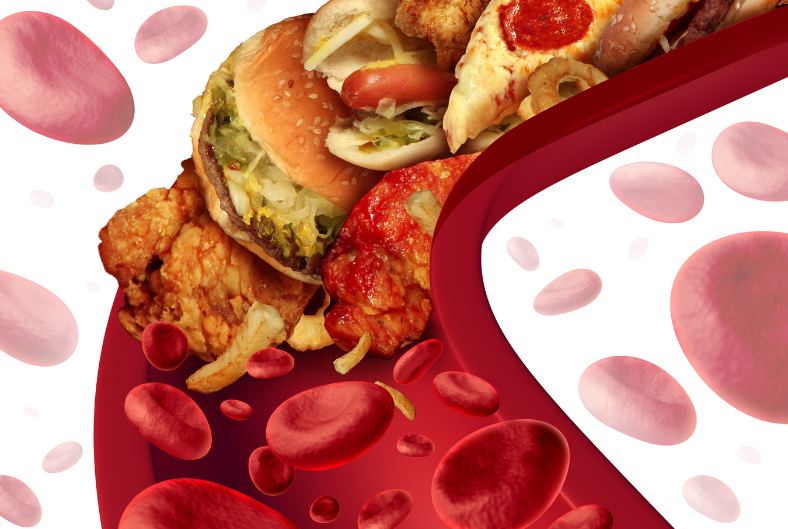Cholesterol is a word that many people have heard, but not everyone knows what it means. Cholesterol is a fatty substance in our blood that our body needs to work properly. There are two main types of cholesterol: good cholesterol and bad cholesterol. Knowing the difference between them is important for keeping our hearts healthy.
Good Cholesterol vs. Bad Cholesterol
Good cholesterol is called HDL, which stands for high-density lipoprotein. HDL is good for your heart because it helps remove bad cholesterol from your blood. The more HDL you have, the better it is for your heart health. It is like a superhero that protects your heart from damage.
Bad cholesterol, on the other hand, is called LDL, which stands for low-density lipoprotein. What is high LDL? High LDL is when there is too much bad cholesterol in your blood. This bad cholesterol can build up in your arteries, which are the tubes that carry blood from your heart to the rest of your body. If your arteries get clogged, it can lead to heart problems like heart attacks or strokes.
What Causes High Cholesterol?
So, what causes high cholesterol? Many things can make your cholesterol go up. Eating too much fatty food, not exercising, and smoking are some of the main reasons. Sometimes, people have high cholesterol because it runs in their families. Even young people can have high cholesterol if they do not take care of their health.
Symptoms of High Cholesterol in Females
High cholesterol does not usually have any clear signs that you can see or feel. This is why many people don’t know they have it until they have a serious health problem. But there are some symptoms of high cholesterol in females that people should be aware of. For example, females may feel pain in their chest, have trouble breathing, or feel very tired all the time. If you notice these symptoms, it’s important to talk to a doctor.
Why Is Cholesterol Important for Heart Health?
Cholesterol is important for your heart health because it affects how well your heart and blood vessels work. Good cholesterol helps keep your arteries clear, so your heart can pump blood easily. But too much bad cholesterol can cause your arteries to become narrow and stiff. This makes it harder for your heart to pump blood, which can lead to heart issues.
Cholesterol and Heart Health
Cholesterol levels are something that many people need to watch. According to the American Heart Association, nearly 94 million U.S. adults aged 20 or older have total cholesterol levels higher than 200 mg/dL, which is considered high. High cholesterol is a major risk factor for heart problems. In fact, the Centers for Disease Control and Prevention (CDC) says that having high cholesterol doubles your risk of developing heart issues.
How to Keep Your Heart Healthy
Keeping your heart healthy is very important. Here are some simple ways to do it:
- Eat Healthy Foods: Choose foods that are low in fat and high in fiber. Vegetables, fruits, whole grains, and lean meats are good choices. Try to avoid foods that are high in fat, like fried foods, cakes, and cookies. These foods can increase bad cholesterol and cause heart problems.
- Exercise Regularly: Exercise is great for your heart health. It helps lower bad cholesterol and raise good cholesterol. Try to be active for at least 30 minutes a day. You can walk, run, dance, or play sports.
- Avoid Smoking: Smoking is bad for your heart and can increase your cholesterol levels. If you smoke, try to quit. If you don’t smoke, stay away from people who do.
- Go for Regular Check-Ups: Visit your doctor regularly to check your cholesterol levels. This is especially important if you have a family history of high cholesterol or heart issues.
- Know Your Numbers: It’s important to know your cholesterol numbers. Your doctor can do a blood test to check your cholesterol levels. If your numbers are high, your doctor can help you find ways to lower them.
A word from the doctor —
Cholesterol is a part of life, and it is something that everyone should understand. Knowing the difference between good and bad cholesterol can help you make better choices for your heart health. Remember, eating healthy foods, exercising, avoiding smoking, and getting regular check-ups can help keep your cholesterol levels in check. If you have any symptoms of high cholesterol, especially if you are a female, talk to your doctor right away. Taking care of your heart today can help you avoid heart problems in the future.
So, get started by contacting us right away.

